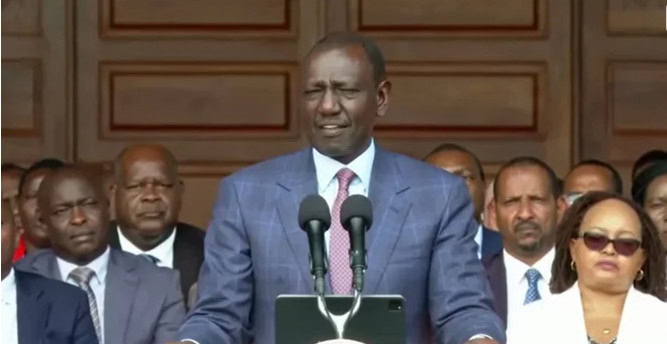President William Ruto of Kenya has taken a bold stance amidst escalating public unrest by refusing to sign a controversial finance bill that seeks to increase taxes across various sectors. His decision comes in response to widespread protests in Nairobi, where demonstrators breached security at the parliament building following the bill’s passage.
Protesters, numbering in the hundreds, overwhelmed security forces on Tuesday, gaining access to both the National Assembly and the Senate. Inside, they vandalized parts of the parliamentary premises and set fires in a dramatic display of opposition against the government’s fiscal policies. Chants condemning the tax hike reverberated through the chaos, reflecting the deep-seated frustrations of the populace.
Earlier in the day, citizens had mobilized in the streets to express their vehement opposition to the finance bill, which aims to generate an additional 346.7 billion shillings through increased taxes, including adjustments to the railway development levy and import declaration fees. Critics argue that such measures would exacerbate existing economic hardships without providing substantial relief to the public.
Tragically, the protests turned deadly with reports confirming at least four fatalities due to gunfire, while numerous others sustained serious injuries amidst the clashes. Nairobi County Police Commander Adamson Bungei provided grim details of casualties and the extensive damage caused during the unrest.
In response to the turmoil, President Ruto acknowledged the public outcry and pledged to engage in dialogue with Kenya’s youth to explore alternative fiscal measures. He emphasized the need to reduce government expenditures without further burdening taxpayers, signaling a willingness to reconsider the contentious provisions of the finance bill.
The parliamentary approval of the bill underscores the complex economic challenges facing Kenya, where nearly 37% of annual income is earmarked solely for debt servicing. The aftermath of these protests highlights deep-seated public discontent and underscores the delicate balance between fiscal responsibility and public welfare in Kenya’s economic policy landscape.














